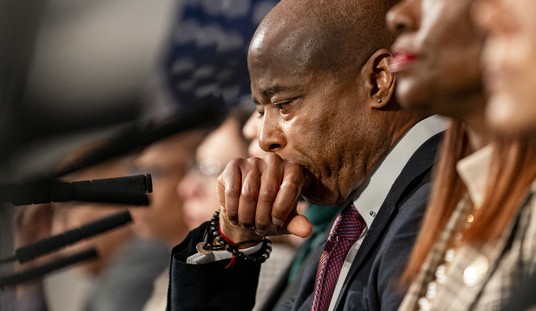NPR deploys a rather euphemistic headline to describe a long-predicted consequence of ObamaCare’s employer mandate, which hits this fall for larger employers. The headline, perhaps supplied by partner Kaiser Health News, reads “Employers May Start Paying You To Buy Health Insurance.” What it actually means is employers may pay more in wage compensation while kicking employees into ObamaCare exchanges:
What if employers started giving workers a chunk of cash to buy health insurance on their own instead of offering them a chance to buy into the company plan? Are workers ready to manage their own health insurance like they do a 401(k)?
The idea that employers might drop their health plans and replace them with a “defined contribution” for employees has been around for years. It’s one way for employers to control their expenses in the face of the relentlessly rising costs of health care.
In fact, it’s been around long enough for ObamaCare critics to point out the obvious incentives to do so within the law. While Barack Obama insisted that people could “keep their plans,” especially those who got them through their workplace, the rapid increase in health-insurance premiums are pushing employers to get out of the health-insurance business.
HHS’ own studies on this suggested that the employer mandate could kick as many as 93 million Americans out of group health insurance and into the individual-plan market — where the cost of taxpayer subsidies would skyrocket. Some of those employers might offer higher wage compensation to make up the difference, but some of them may not. And that bump will be a one-time affair, while escalating costs for health insurance will fall entirely on the worker. That’s why employers will be glad to get rid of this burden.
NPR and Kaiser believe this is the perfect time to make that transition, because the technology is working so darned fantastic:
Now that the Affordable Care Act has made non-company plans more accessible and affordable by creating online marketplaces where people can shop for coverage, the idea is gaining traction.
“The technology has caught up to the concept,” says Paul Fronstin, director of the health research and education program at the Employee Benefit Research Institute.
Really? The price tag for four states’ failed exchanges run to about a half-billion dollars, and that doesn’t take into account what the federal exchange failure has cost. Prior to ObamaCare, insurers had their own web portals for consumers to select plans, and those worked reasonably well (I had to research this early on in my blogging career). The web-portal technology had already caught up with the market, which is why the government failures are such an embarrassment.
And guess what? This new arrangement has some serious tax consequences for workers, too:
If an employer dropped group coverage and instead offered employees $5,000 to buy an individual plan on an exchange, workers would owe income tax on that amount. Employees earning less than 400 percent of the federal poverty level (right now that’s $45,960 for an individual or $94,200 for a family of four) could qualify for tax credits to reduce the cost of their monthly insurance premium, but workers who earn more than that wouldn’t benefit.
Employers may choose the best of both worlds for themselves — a private exchange system which protects them from fines, but dumps employees with the taxable lump sum off of group coverage. This actually isn’t a bad model for free-market reform, but the layers of mandates and costs from ObamaCare makes this choice the worst of both worlds for workers.
NPR seems intent on selling this as a funemployment kind of outcome. I doubt workers will be that cheery about the coming seismic shift as the spin on this article suggests.








Join the conversation as a VIP Member